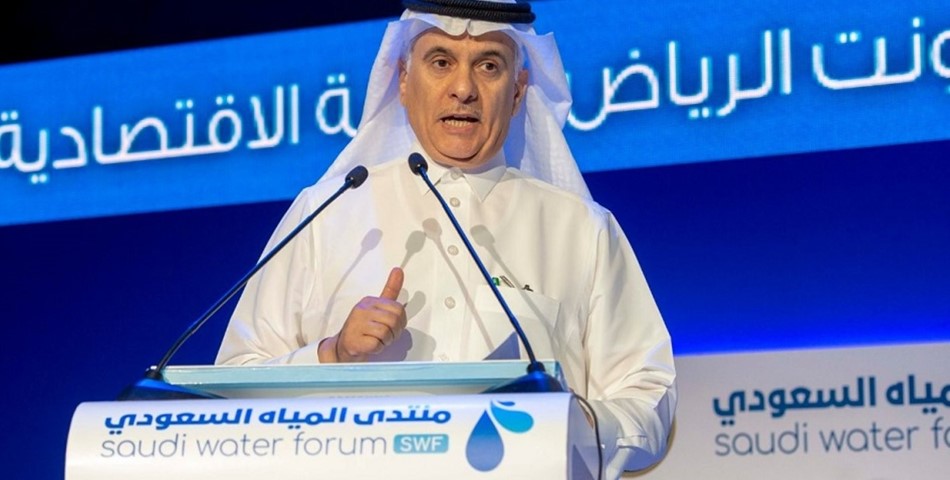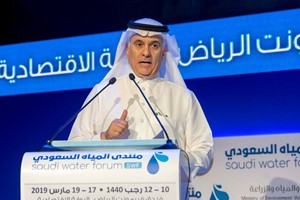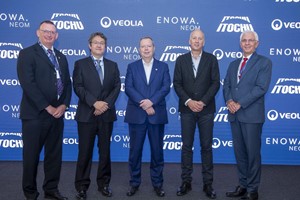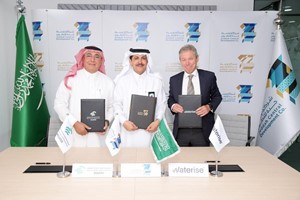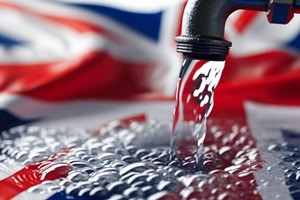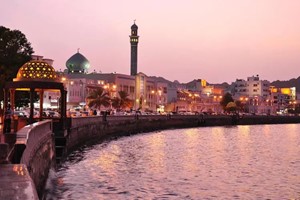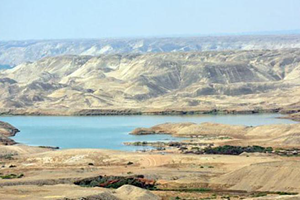The Saudi Authority for Industrial Cities and Technology Zones has unveiled a groundbreaking initiative, “Voluntary Commitment to Water Sustainability,” in collaboration with the private sector. This announcement was made during their participation in the 7th edition of the Future Investment Initiative (FII) forum held in Riyadh from October 24 to 26.
The theme of the event was “The New Compass,” reflecting the commitment to forging a more sustainable industrial future in alignment with the National Water Strategy. Ten prominent companies have already pledged their support for this initiative. The list includes major names such as PepsiCo, Swaco, Tetra Pak, Napco National, Mars, Alrabie Food Company, Fanar, Tawzea, Unilever, and Miahona.
Their involvement aims to bolster the industrial sector’s active role and community engagement, in line with the National Industrial Strategy and Saudi Vision 2030 programs, with a specific focus on safeguarding the Kingdom’s water security. Under this initiative, the signed industrial partners are committing to implementing global best practices throughout their operations and value chains to enhance water efficiency and conservation.
The principles guiding their commitment encompass continuous analysis and assessment of water quality, improved usage efficiency, leakage and pollution management, enhanced awareness and education about water sustainability, and strict adherence to relevant national and international legislation and regulations.
This initiative is part of a broader set of conservation and sustainability initiatives launched by “Modon.”
Saudi’s Green Initiatives for A Sustainable Future
These include the “Green Cities” initiative, aimed at reducing carbon emissions by planting 5 million trees by 2030, the “Circular Economy” initiative to reduce waste and operational costs, and efforts to improve air quality in industrial cities through surveillance programs and real-time environmental and meteorological data.
“Modon” has demonstrated a commitment to sustainable development goals, emphasizing clean water, prudent consumption, and the recycling of grey and industrial water for various industrial and irrigation purposes.
Over 6,000 factories across 36 industrial cities benefit from water services, and smart city standards are being implemented in 18 industrial cities to monitor and manage water resources effectively.
To ensure a reliable water supply for industrial cities, “Modon” is working on an integrated action plan. This includes the operation of new drinking water, pumping, and sanitation plants, along with potential agreements with the private sector to secure future water supplies.
Currently, they operate 28 drinking water plants producing over 44 million cubic meters and 14 industrial drainage plants producing more than 27 million cubic meters annually, with a 52 percent utilization rate of treated water.
Additionally, “Modon” has initiated the innovative Modon’s Lake project in the Dammam second industrial city, utilizing sustainable water solutions by recycling surplus treated industrial wastewater and groundwater.
Since its inception, “Modon” has been dedicated to developing fully serviced industrial lands across Saudi Arabia, overseeing private industrial complexes and cities, and fostering an investment ecosystem that supports entrepreneurs and SMEs in expanding their developed spaces, which currently exceed 202 million square meters.
The National Water Strategy, launched in January 2018 by the Kingdom of Saudi Arabia, stands as a pivotal component of the Saudi Vision 2030.
This comprehensive water plan addresses the water sector’s challenges, provides enabling mechanisms, and encourages community partnerships to boost the national economy positively.
https://www.arabianbusiness.com/
Edited by Yehya Aoun



